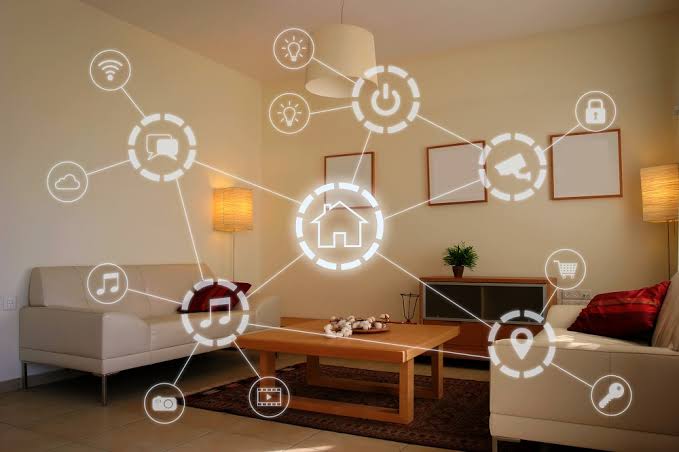Try These New Advances in Home Technology

In recent years, advancements in what we put in our home has changed. We might be putting trendy custom barn doors or the latest flooring, but think about technology. Home technology has revolutionized the way homeowners interact with and manage their living spaces. From increased automation to improved energy efficiency, these innovations aim to enhance comfort, convenience, and security while reducing the overall environmental impact. In this article, we will explore some of the exciting new advances in home technology that are helping homeowners in various aspects of their daily lives.
Smart Home Automation
Smart home technology has become increasingly popular, allowing homeowners to control various devices and systems remotely through their smartphones or voice-activated assistants. Smart thermostats, for example, can learn the household’s temperature preferences and adjust heating or cooling accordingly, leading to energy savings and improved comfort. Smart lighting systems enable users to create customized lighting scenes, schedule on/off times, and adjust brightness levels, offering convenience and energy efficiency.
Artificial Intelligence (AI) Assistants
AI-powered virtual assistants, like Amazon’s Alexa, Google Assistant, and Apple’s Siri, have become central to many smart homes. These assistants can perform tasks such as answering questions, setting reminders, managing schedules, and even controlling other smart devices within the house. As AI technology continues to advance, these virtual assistants are becoming more intuitive and capable of understanding and responding to natural language commands.
Energy Monitoring and Management
In the pursuit of energy efficiency and cost savings, homeowners can now access real-time data on their energy consumption. Advanced energy monitoring systems provide insights into electricity, water, and gas usage, empowering users to identify potential energy-wasting areas and adjust their behavior accordingly. Some systems can also automate energy-intensive appliances to run during off-peak hours when energy rates are lower.
Home Security and Surveillance
Home security technology has seen significant advancements in recent years. High-definition security cameras with motion detection and night vision capabilities provide homeowners with real-time monitoring of their property, both inside and outside. Integration with smartphones allows for remote access, making it easier to check in on the house while away. Smart doorbells equipped with cameras and two-way communication features offer an added layer of security, allowing homeowners to interact with visitors from anywhere.
Home Health and Wellness Monitoring
Advances in home technology have extended into the realm of health and wellness monitoring. Smart devices, such as wearable fitness trackers and smart scales, can sync data with apps to help homeowners track their health and fitness goals. Additionally, smart home sensors can monitor air quality, humidity, and temperature, providing valuable insights into potential health risks and helping to maintain a comfortable and healthy living environment.
Internet of Things (IoT) Connectivity
The Internet of Things (IoT) refers to the network of interconnected devices and appliances that communicate with each other and can be controlled remotely. IoT-enabled home technology allows homeowners to synchronize various devices and systems, creating a seamless and interconnected living environment. For instance, a smart home security system can be integrated with smart locks, lights, and cameras to enhance security and convenience.
Water Conservation Technology
Water scarcity and environmental concerns have driven the development of water conservation technologies for the home. Smart irrigation systems can adjust watering schedules based on weather forecasts and soil moisture levels, reducing water wastage in landscaping. Additionally, water monitoring devices can detect leaks and abnormal water usage, alerting homeowners to potential issues and promoting water conservation.
Smart Appliances and White Goods
Appliance manufacturers have been incorporating smart features into their products, enabling homeowners to remotely control and monitor their appliances. Smart refrigerators, for example, can display grocery lists, expiration dates, and suggest recipes based on the available ingredients. Smart washing machines and dryers can be programmed and operated via smartphones, allowing users to optimize energy usage and manage laundry more efficiently.
Home Entertainment and Media Systems
Advancements in home entertainment technology have transformed the way homeowners enjoy media. High-resolution, large-screen smart TVs offer access to a vast array of streaming services and content. Surround sound systems and soundbars provide immersive audio experiences, making home theaters more accessible and enjoyable for the average homeowner.
Home Automation Hubs and Platforms
To manage the increasing complexity of smart home devices, home automation hubs and platforms have emerged as central control systems. These hubs integrate various smart devices, allowing homeowners to control everything from a single app or voice command. The goal is to create a more cohesive and user-friendly smart home experience.
conclusion
advancements in home technology are continually evolving, providing homeowners with an array of tools to improve comfort, convenience, energy efficiency, and security. The integration of smart home automation, artificial intelligence, energy monitoring, security and surveillance, health and wellness monitoring, IoT connectivity, water conservation technology, smart appliances, and entertainment systems is shaping the homes of the future. As these technologies become more accessible and affordable, homeowners can expect to see even more transformative changes that will further enhance their daily living experiences.



